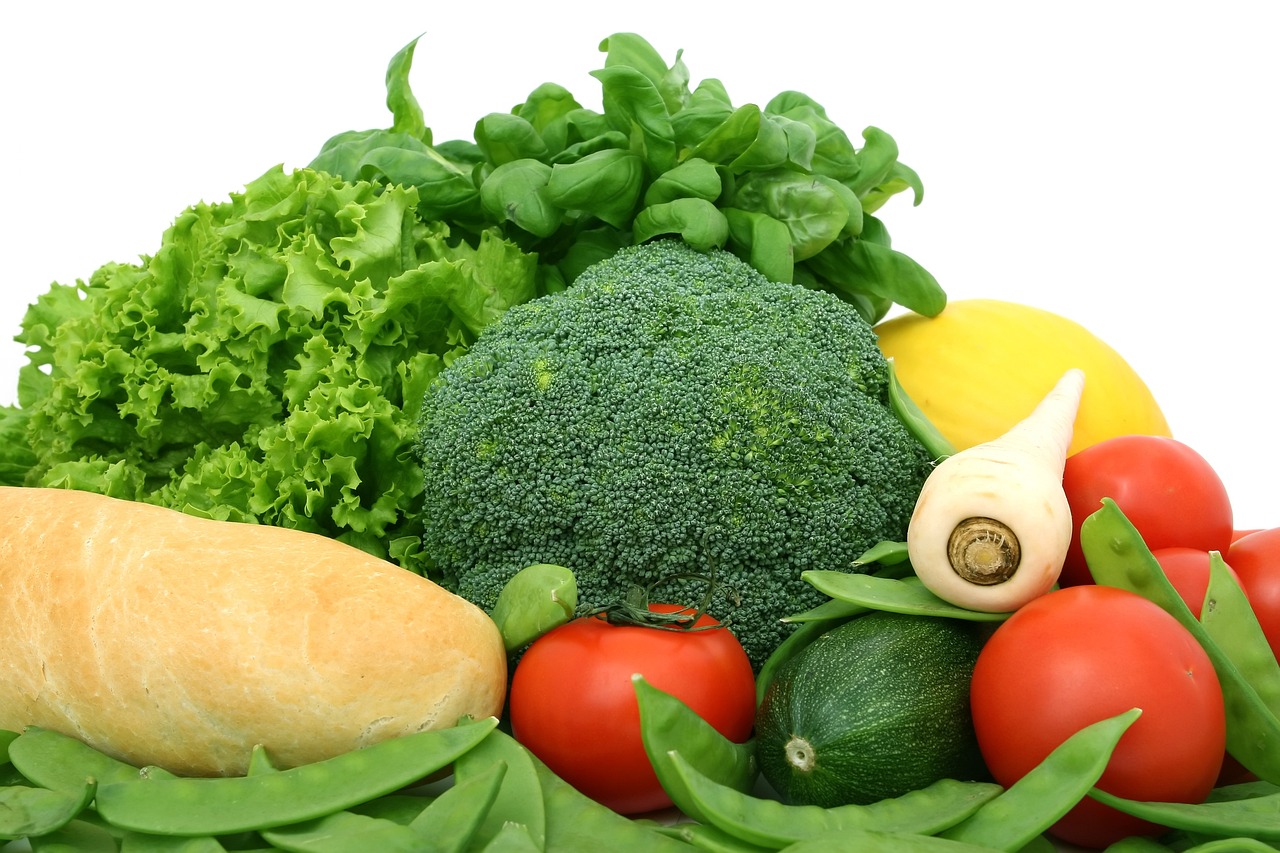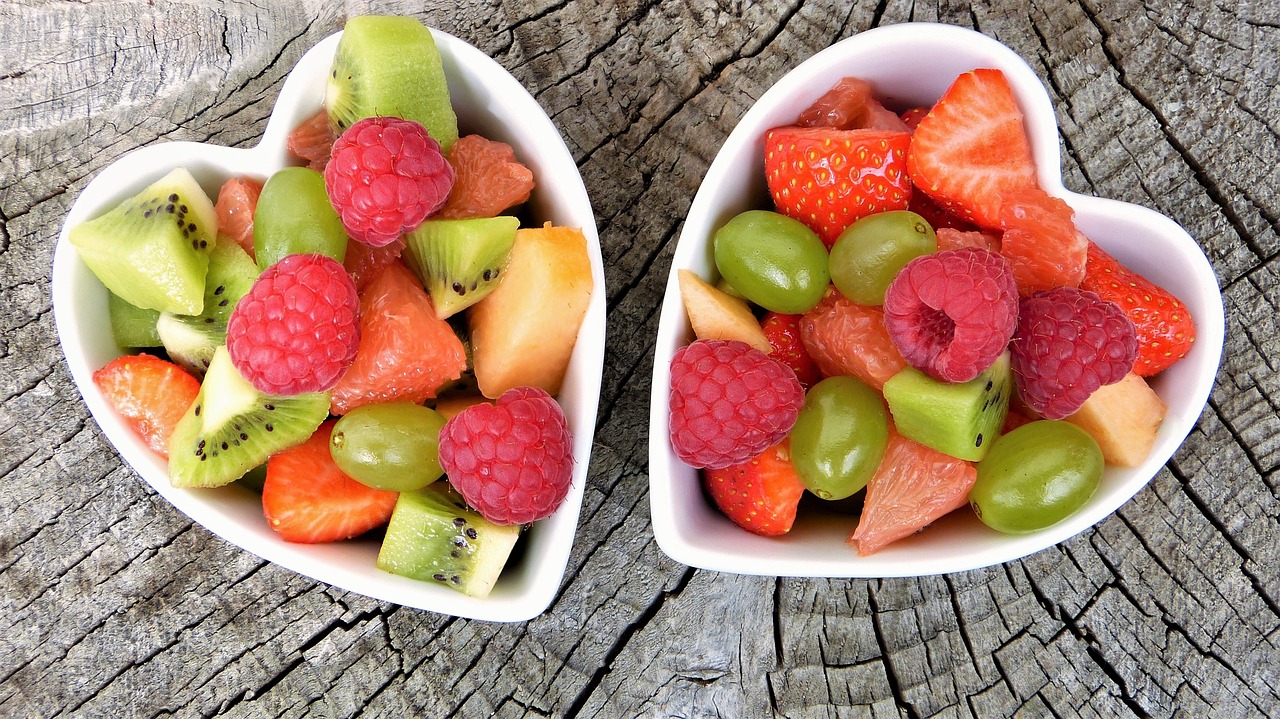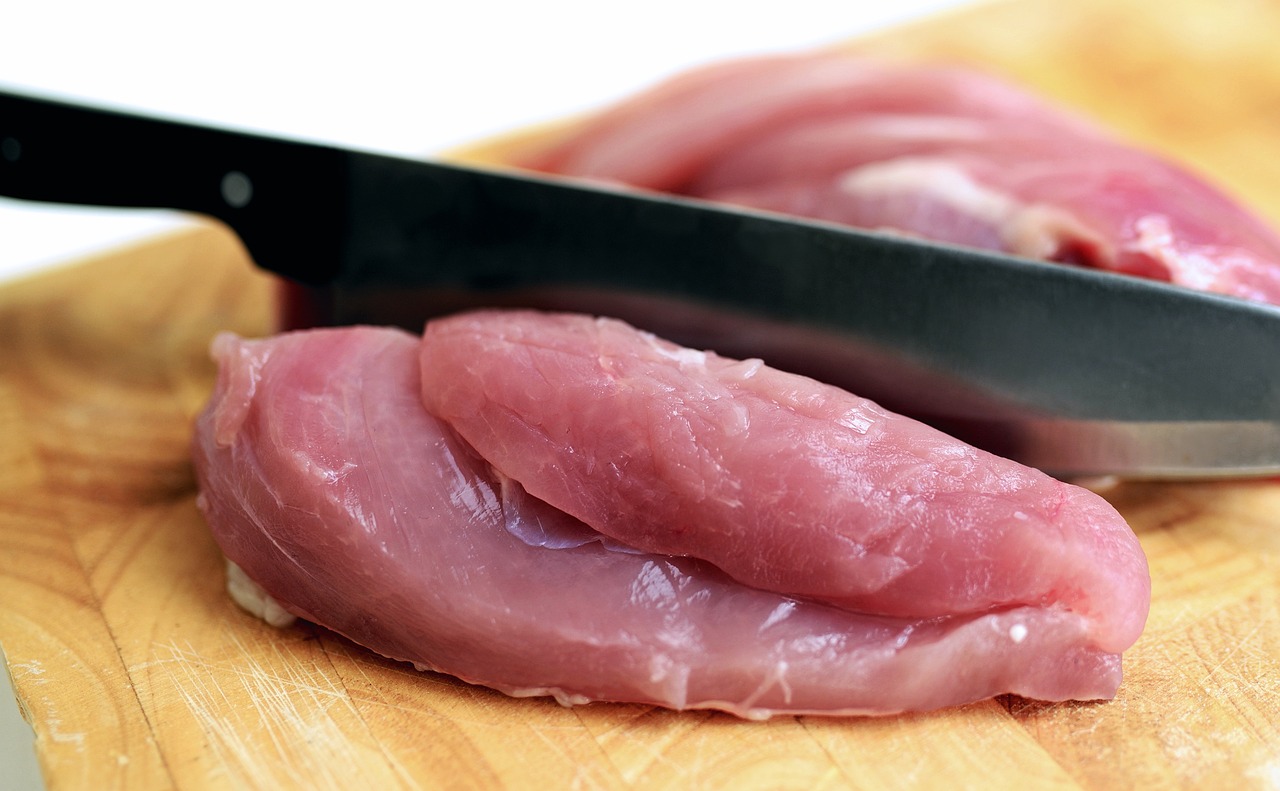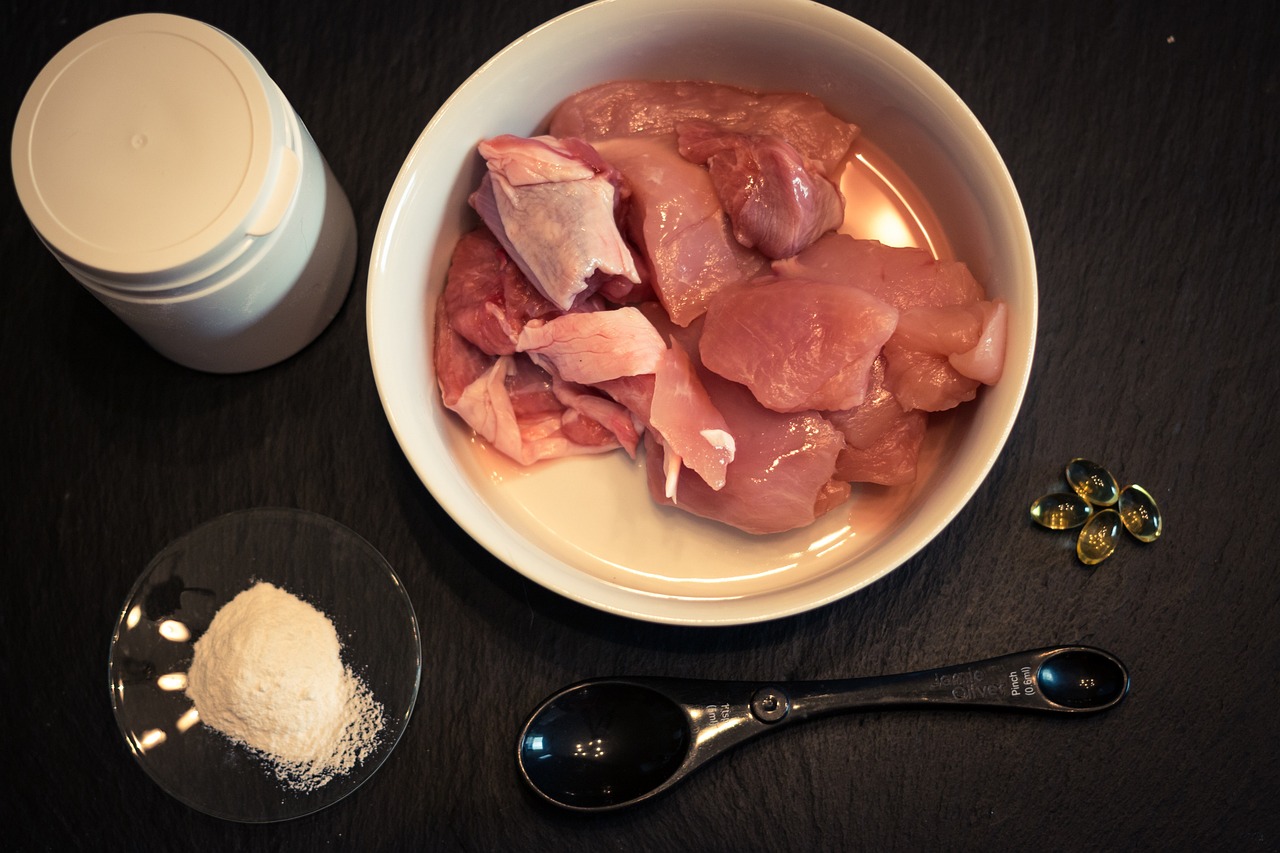Affiliate Disclosure: This post may contain affiliate links. This means we may earn a commission if you make a purchase through these links. This is at no extra cost to you. We only recommend products and services we truly believe in. Your support helps us keep the site running! Thank you.
Some of the best vegetables for Biewer Terriers include carrots, peas, sweet potatoes, and cucumber. These all contain lots of nutrients and will help to keep your Biewer Terrier healthy and happy.
What are the best vegetables for Biewer Terriers?
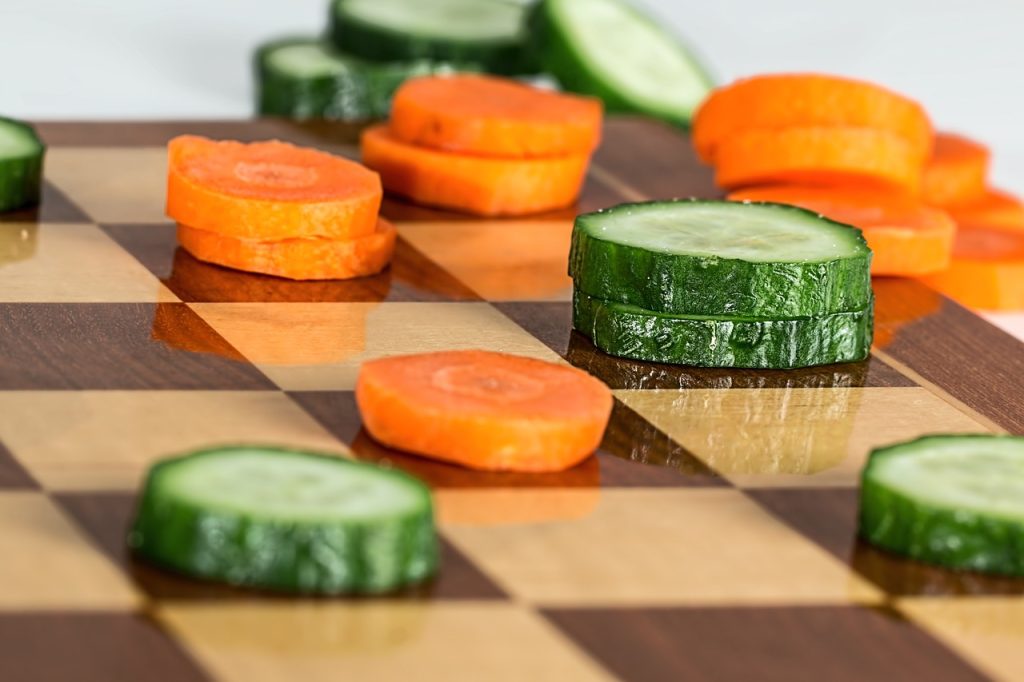
There are lots of different vegetables you can serve up to your Biewer. Here are some of the best and safest:
- Carrots: Rich in beta-carotene, carrots are a low-calorie, crunchy treat that supports eye health and provides a natural source of vitamins.
- Broccoli (in moderation): Broccoli is a good source of fiber and various vitamins. While it’s generally safe, too much can cause digestive upset due to its fiber content.
- Peas: Peas are a good source of vitamins, minerals, and fiber. They can be a tasty and nutritious addition to a dog’s diet.
- Green beans: Low in calories and high in fiber, green beans are a healthy snack for dogs. They can be served fresh or lightly cooked.
- Sweet potatoes (cooked): Cooked sweet potatoes are rich in beta-carotene, fiber, and vitamins. They make a tasty and nutritious treat.
- Pumpkin (plain, canned, or cooked): Pumpkin is rich in fiber and can aid in digestion. Make sure it’s plain and not the sweetened pie-filling variety.
- Zucchini: Low in calories and high in water content, zucchini is a safe and nutritious option. It can be served cooked or raw.
- Cucumber: Cucumbers are low in calories and can provide a refreshing crunch. Ensure that they are sliced into manageable pieces.
- Celery: Celery is low in calories and provides a satisfying crunch. It can be a good source of hydration due to its high water content.
- Spinach (in moderation): While spinach is rich in nutrients, it should be fed in moderation due to its oxalate content, which can interfere with calcium absorption.
- Bell peppers (in moderation): Bell peppers are a good source of vitamins, but their seeds and stems should be removed. Feed in moderation due to their fiber content.
- Asparagus (in moderation): Asparagus is safe in moderation. Ensure it’s cooked, and remove tough, woody parts. Too much may lead to gastrointestinal upset.
- Cauliflower (in moderation): Cauliflower is a low-calorie option but should be fed in moderation due to its fiber content, which can cause gas.
- Brussels sprouts (in moderation): Brussels sprouts are rich in nutrients but can cause gas and digestive upset if fed in excess.
- Kale (in moderation): While kale is nutritious, it contains compounds that can interfere with thyroid function. Feed in moderation to avoid potential issues.
Vegetables Biewer Terriers mustn’t eat
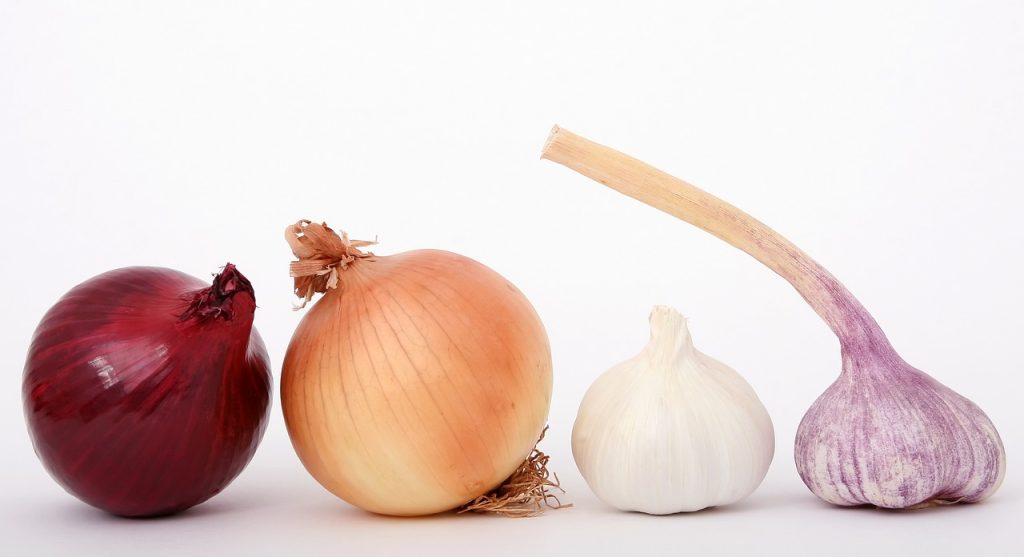
While there are plenty of safe vegetables that Biewer Terriers and other dogs can eat, there are some dangerous ones they must stay away from too:
- Onions: Onions contain compounds that can damage a dog’s red blood cells, leading to anemia. All forms of onions, including cooked, raw, and powdered, should be avoided.
- Garlic: Similar to onions, garlic can also cause damage to a dog’s red blood cells, leading to anemia. Even small amounts can be harmful over time.
- Leeks: Leeks, like onions and garlic, contain compounds that can be harmful to dogs and may lead to gastrointestinal distress and anemia.
- Shallots: Shallots, part of the onion family, contain similar compounds that can cause damage to a dog’s red blood cells.
- Chives: Chives, another member of the onion family, can cause similar problems as onions and garlic, including anemia.
- Avocado (the pit and skin are especially toxic): Avocado contains a substance called persin, which can be toxic to dogs. The pit and skin pose a choking hazard and can be particularly harmful.
- Mushrooms (wild mushrooms can be especially dangerous): Some mushrooms, especially wild varieties, can be toxic to dogs and may cause a range of symptoms from gastrointestinal upset to organ failure.
- Rhubarb: Rhubarb leaves contain oxalates, which can affect a dog’s digestive and nervous systems. Both the leaves and stems should be avoided.
- Raw potatoes (cooked potatoes in moderation are usually fine): Raw potatoes contain solanine, a toxic substance. Cooking destroys much of the solanine, so cooked potatoes in moderation are generally safe.
- Tomato leaves and stems (ripe tomatoes in small amounts are usually okay): Green parts of tomatoes, including leaves and stems, contain solanine, which can be toxic. Ripe tomatoes in small amounts are typically safe.
- Green tomatoes: Unripe or green tomatoes, like other green parts of the tomato plant, contain solanine and should be avoided.
- Asparagus ferns (the green, leafy part): While the asparagus itself is generally safe, the ferns or foliage can cause digestive upset.
- Eggplant (in large amounts): Eggplant contains solanine, and while small amounts are usually safe, excessive consumption may lead to issues.
- Raw beans (raw kidney beans are especially toxic): Raw beans, especially kidney beans, contain lectins that can be toxic to dogs. Cooking eliminates this risk.
- Corn on the cob (the cob can cause intestinal blockage): While plain corn is usually safe, the cob can be a choking hazard and may cause intestinal blockage if ingested.
Related Post: Great Fruits That Biewer Terriers Can Eat
How often can Biewer Terriers eat veggies?
The American Kennel Club (AKC) says that dogs don’t need fruit and vegetables as part of their diet. But they can have them as a treat.
I’ll be honest, my dogs have vegetables every day. At dinner time, they beg me for cucumber. And depending on what I’m cooking, they might get some carrot and bell pepper too.
As a general rule, vegetables shouldn’t take up any more than 10% of your Biewer Terrier’s daily calorie intake. Make sure you know how many calories your Biewer Terrier needs first and adjust their other meals to accommodate the calories in any veggies you give them.
It’s best to avoid feeding canned vegetables (except pumpkin) to your dog
Canned vegetables are great for humans as they last for a long time as long as they’re unopened. The problem with canned vegetables for dogs is that they contain salt and preservatives. These ingredients stop the veg inside from going off. But you don’t want your Biewer Terrier eating these, so stick with fresh or frozen veggies instead.
The exception to this rule is canned pumpkin. As long as it’s 100% pumpkin with no sugar, salt, spices, or xylitol added to it, you can give it your dog. Canned pumpkin is particularly good for Biewer Terriers who have GI issues and sensitive stomachs.
There’s soluable and insoluble fiber in plain, canned pumpkin. This makes it soothing on the dog’s stomach. These types of fiber also help to treat constipation and diarrhea.
Frozen veggies are a good option for Biewer Terriers
Frozen vegetables are a good choice for all dogs. Vegetables that are frozen will have been picked, prepared, and frozen in less than 24 hours. This means there are more vitamins, nutrients, and overall goodness in them. Plus, you can feed them to your pet in their frozen form or cook them before serving.
Always make sure you only feed your Biewer Terrier frozen vegetables that feature on the best vegetables for Biewer Terriers list above.

